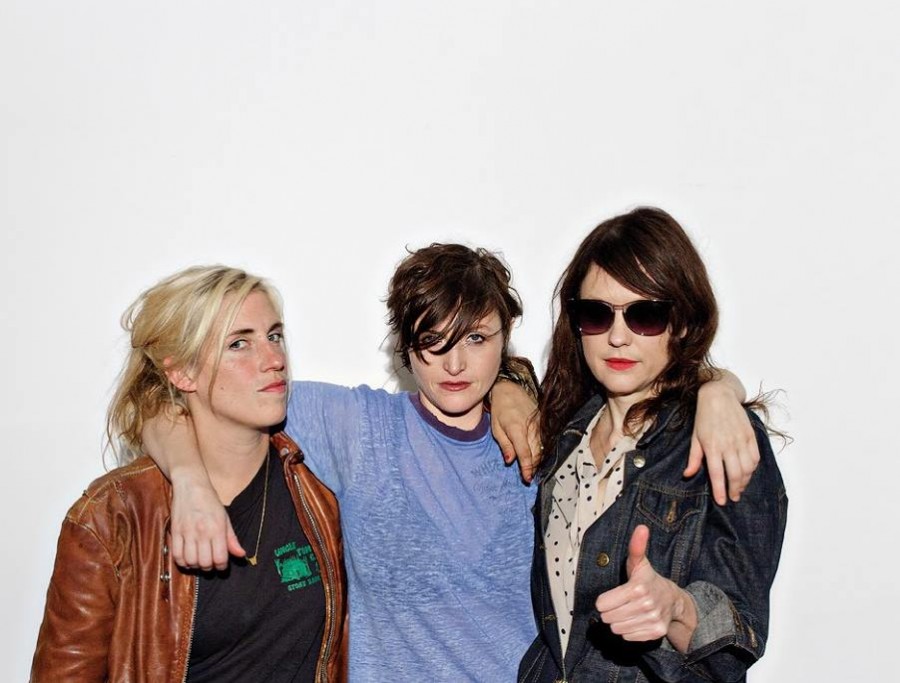“Hi, we’re Ex Hex from Washington, D.C.”
Last Thursday, local guitar virtuoso Mary Timony said those words to a full house at The Parish, a 450-capacity venue in the heart of downtown Austin. But Timony’s band is one of a diminishing number of D.C.-based acts that played the city’s annual South by Southwest music conference and festival this year.
Even a few years ago, it seemed like far more local acts made the pilgrimage to SXSW—regardless of whether they had been signed to a large independent label like Merge Records, which Ex Hex recently did. Sure, D.C. acts including experimental pop workhorses Deleted Scenes, ethereal duo GEMS and increasingly in-demand rapper Shy Glizzy played official showcases this year, but the appeal of the festival seems to have declined—or at least evolved—for many local musicians.
In 1987, SXSW started out as a relatively small affair that put on new indie-rock acts. It hasn’t been a small festival for quite a while now, though—and its size alone is enough to turn off D.C. punk band Priests, which has never been to the festival, and doesn’t plan to ever go.
“We don’t want to be one of the marbles in the bag,” says Priests vocalist Katie Alice Greer. She says the crowds at SXSW are so overstimulated, attendees probably wouldn’t take much from a Priests set anyway, no matter how energetic it was.
Priests drummer Daniele Yandel questions the fest’s marathon mentality. “How can you play five good sets in a day? I don’t know how that’s humanly possible.”
Meanwhile, Alex Tebeleff of psych-rock outfit Paperhaus—which, along with Priests, is one of D.C.’s hardest-touring rock bands—has a more practical concern. “Where the [hell] do you park your van?”
Tebeleff went down to the festival as a spectator in 2011, but lengthy Paperhaus tours in intervening years have dimmed his view of SXSW. “I think a couple of years ago, I would have been ignorant enough to not realize that I shouldn’t go,” he says. “Now I know enough about the realities of what playing music is like, and there’s no question, it’s absolutely not financially worth it unless we have a record that’s new, that’s ready to promote that we’re pushing. It’s just not worth it.”
Dreamy post-rock shredders Drop Electric did release an album last fall, but without being accepted into an official SXSW showcase, opted not to go this time. Member Ramtin Arablouei says that the group didn’t have a good experience at New York convention and music festival CMJ, and he expects that SXSW might share some of the same drawbacks.
“My personal feeling from a distance is that SXSW really caters more towards providing a fun experience for audience members. For almost no money you can walk around and see thousands of bands,” Arablouei says. “I find it to be a bit exploitative. Artists go there hoping they get lucky and be seen by the ‘right people.’ They pay money to apply to get into the festival. Meanwhile, someone is getting pretty rich collecting sponsorships and money from artists. Seems backwards to me.”
Priests also balks at the idea of bands at SXSW getting wrapped up in the festival’s heightening commercialism. “I love Doritos, but I don’t want to play inside of a giant Dorito vending machine next to an inflatable Dorito,” says Priests bassist Taylor Mulitz.
Heavy hitting power-pop band Typefighter releases its debut LP, The End of Everything, on April 22. Even with an LP to promote, though, the SXSW veterans don’t think hitting Austin would have been worthwhile.
“If you go there the wrong way, it can just defeat you,” says Typefighter’s Ryan McLaughlin, who has been to SXSW three times. “It’s a ton of fun and whatever, but unless you scheme it out and have a strategy of some sort, then it is just a giant party. And we can party here.”
Another SXSW veteran, May Tabol of D.C. band Pree, agrees that a SXSW strategy is key. “Timing is everything. We’d just wrapped up an album two weeks prior to the festival and are currently working on music videos, so it didn’t make sense for us to head down there mid-project,” she says. “The festival is oriented toward innovative music, so best to go when you’ve got something ready to share. Otherwise you’re adding to the noise and not the dialogue.”
Tabol still says that she would return “in a heartbeat” to Austin, though. So does Shark Week bassist Danielle Vu, who speaks glowingly about Shark Week’s experience as an official SXSW act in 2013. “Everyone there is in a great mood,” Vu says, “and the energy from fellow concertgoers is infectious and energizing.”
Maybe the secret to enjoying SXSW as a performer is to chill out. “If you’re able to drop the expectations and urgency of ambition for a few days, you can’t help but have a good time,” Tabol says. “It gives bands a perspective that they may not have gained otherwise, helping them to grasp the jaw-dropping tidal wave of bands out there [and] where one’s own band fits into the larger picture.”



Pingback: Arts Roundup: South Sigh Southwest - Arts Desk()
Pingback: District Line Daily: Will Gray Have His Day in Court? - City Desk()